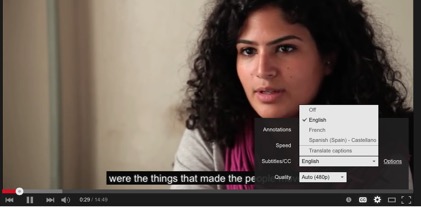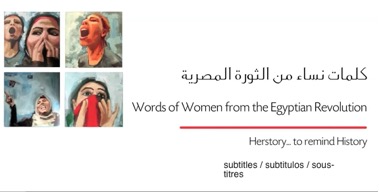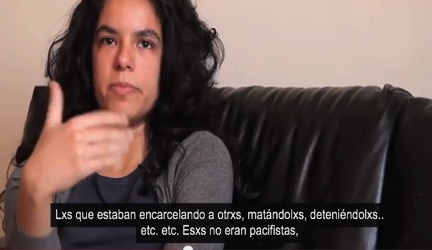Translation and Solidarity in Words of Women from the Egyptian Revolution

Leil-Zahra Mortada
Translation has been an integral part of Words of Women from the Egyptian Revolution from its very first stages. Subtitling the speech of the women interviewed into a variety of languages is not just an issue of disseminating information and making their unique experiences accessible to as many people as possible, but is part of a broad expression of political commitment that assumes different forms. First and foremost, it is part of a wider postcolonial and feminist commitment to allowing the subjects themselves to shape their own voices and representations. Speaking in Arabic, the women translate their first hand experiences into a discourse that counters the widespread appropriation of the voices of both women and people of colour, which have traditionally been constrained and distorted by patriarchal, xenophobic and racist interpretations and streamlined into simplistic generalizations that oscillated between imposition and exoticism. Making subtitles into a wide range of languages an integral part of the project is a further step towards empowering Egyptian women by connecting them to networks of rebellion across borders. Subtitles extend the messages of empowerment to other locales, make local political struggles visible to other protest movements, and further foster international networking and solidarity. This essay offers a critical account of both levels of translation as they evolved in Words of Women from the Egyptian Revolution.
Leil-Zahra Mortada, transfeminist queer anarchist, was born in Beirut. Leil has formed part of several groups of alternative media and political collectives in Lebanon, Egypt and the Spanish State, with a major focus on anarchism, gender activism, sexualities, the border regime and state terrorism in its multiple forms. For the past few years they mainly worked within the Egyptian revolution, primarily taking part in the collectives Operation Against Sexual Harassment/Assault (OpAntiSH), No to Military Trials for Civilians and Mosireen. Leil also founded Words of Women from the Egyptian Revolution, an oral herstory project, in 2012, with the aim of collecting stories of women of all communities in Egypt who participated in various stages of the Egyptian revolution.
Images from Leil-Zahra Mortada’s chapter:

Figure 1: Choice of subtitling language on Youtube

Figure 2: Opening screenshot of Words of Women videos: ‘Herstory – to remind History’ appears in English only

Figure 3: Replacement of masculine o and feminine a with x